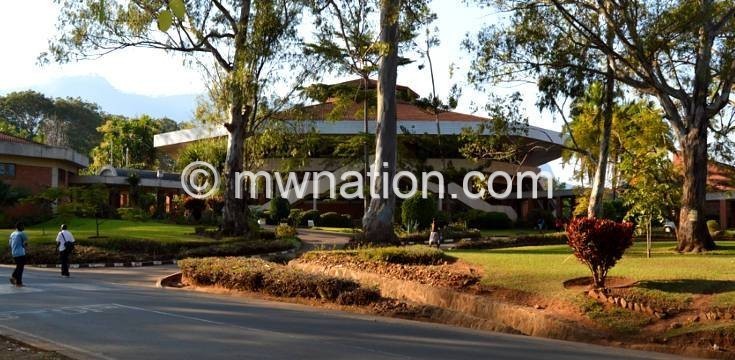‘Varsity should engage its alumni
A month hardly passes without social media philanthropists posting about a Malawi public university student in dire need of tuition fees.
Despite coming from different backgrounds, a common thing about the needy students, mostly from University of Malawi (Unima), is that they are always talented students with potential but lacking a proper support system after missing out on government students’ loans.

This is the noble face of social media, one that highlights the plight of needy university students and sees many well-wishers coming in with financial help.
But, perhaps there is a better way of soliciting funds to enable deserving students regardless of social and financial background to study in our public universities. A way which does not expose the needy students’ poverty or demean effeorts parents made to look after the needy kids. A way which does not require ‘shocking’ poverty images for well-wishers to help deserving students.
While social media philanthropists are raising funds for the needy students, the institution that triggers the spectacle is always a spectator in an age where renowned world universities are raising funds to cater for deserving talented students from all backgrounds.
Take for instance the University of East Anglia (UEA) in the United Kingdom. Twice yearly, it engages a team of dedicated students to call and speak to as many of its alumni as possible in the Alumni Call Campaign where the latter pledge funds towards funding scholarships and life-changing research.
The campaign is not only a fundraising venture “but also a great opportunity to reconnect alumni with the university through current students and find out what UEA is like today,” reads part of the description about the campaign on UEA’s website. To date the campaign has funded scholarships whose recipients have gone to lead and make a difference in their respective areas.
But there exists a constituency of professionals which comprise a huge percentage of Unima alumni that are readily available to contribute fees for needy university students without highlighting their plight on social media.
Private practice lawyer Innocent Kubwalo welcomes the idea that universities in Malawi come up with an arrangement that engages as many alumni they can to enable more students benefit from the generosity of alumni and other donors.
“I recently participated in an initiative arranged by dancehall artist Blasto aimed at supporting primary school education by helping pupils to get ready and be excited about the new term.
“We reached out to a number of individuals to assist him to mobilise the funds and volunteer on the date of the event,” he says.
He adds that it was easy for him and others to take up the challenge because he comes from a humble beginning the pupils.
“I know how parents are usually stretched at the start of school terms or at the beginning of year owing to among other reasons, the fact that they usually have big families to support,” says Kubwalo.
The group bought writing materials, soap, reusable sanitary pads and engaged health practitioners to give the children free wellness checks. About 25 people contributed in monetary and volunteering terms. The group is also repairing broken desks at Biwi Primary School.
Teresa Ndanga, a Unima and Harvard University (USA) alumni, sounds perplexed as to why after spending two years at Harvard she receives an e-mail from the institution on weekly basis, yet she has never received a single e-mail from Unima where she spent about four years.
“E-mails from Harvard come almost weekly, some that follow up on my career and even offering guidance on career prospects. Some seek to raise tuition for students,” says Ndanga, a corporate communications executive with AHL Group.
She adds that The Polytechnic, where she did her bachelors degree only engages her when they are conducting some study, or in her capacity as chairperson for Media Institute for Southern Africa Malawi Chapter.
“Unima constituent colleges need a dedicated office to engage the alumni, there is so much wealth of experience, knowledge and financial support that this group can offer for the growth of these institutions, the colleges should tap into those readily available resources,” adds Ndanga.
On his part, Blessings Phumisa, a Unima and Sussex University alumni, wonders why Unima constituent colleges do not have a dedicated office that deals with alumni.
He is of the view that this should have been part of the broader mandate of their public relations and community outreach initiatives.
“All universities in Malawi should have dedicated offices that deal with engagements with former students ranging from fundraising initiatives, mentorship programmes to seeking views on policy formulation.
“For the University of Malawi, ties with the students’ end the minute you hand in your dissertation. In fact, you hear about your graduation ceremony from notices on radio and newspapers,” he says.
Phumisa expressed sadness that alumni are the ones taking the initiative to reach out to their alma mater when it should have been the opposite, stating that this becomes hard for alumni to coordinate their initiatives as they lack the database of former students.
Unima public relations officer Alfred Banda could not explain why the institution does not fully utilise its alumni.
When contacted, he promised to come back with a response once the person responsible for alumni matters offers information, perhaps an indication that for the university, it does not matter that in the digital age, information is supposed to be provided quickly.





